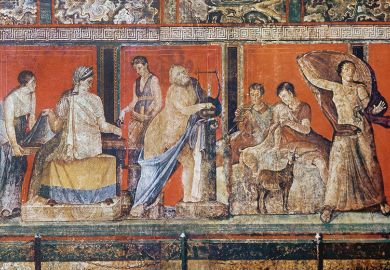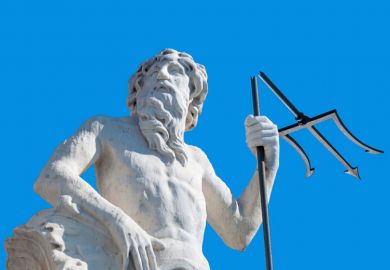This book stems from an undergraduate course on the subject taught by specialists in the three religions at the University of Miami. Their basic similarity is a belief in monotheism, or a single, personal God, rather than an impersonal, mechanical principle such as karma. Monotheism assumes that God acts justly, to reward and punish, rather than arbitrarily. There must be specific rules of both rituals and ethics.
The importance of rituals to ethics varies sharply, not only from religion to religion but also between branches of each religion. For example, Reform Judaism emphasises rituals far less than do other branches, and Roman Catholicism emphasises rituals far more than does Protestantism.
After giving a pellucid overview of each religion, the authors consider the distinctiveness of each on various common topics: scripture; creation; covenant and identity; commandment: ritual and ethics; peoplehood and community; gender, sexuality and marriage; redemption, salvation and life after death; and contemporary monotheism. But it is not always clear how the views taken by each religion stem from their monotheism.
Does monotheism actually chime with human experience? Surely a world in which natural catastrophes kill thousands, hardly all of whom can be blamed for their woes, seems to reveal something other than scrupulous punishment by a single God operating on universal criteria. Of course, believers since the Book of Job have questioned the ways of God. Yet it surely seems more sensible to attribute the arbitrariness of life either to no god or to an array of often competing gods, the way Homer’s gods take sides in the Odyssey. During the Second World War, Christian countries on both sides appealed patriotically to the same divinity.
In the Hebrew Bible, or Old Testament, each nation has its own god or gods. Israelites may believe that their God created the world, but they take for granted the existence of other gods. “Monolatry”, or the belief that each nation has its own deity, is assumed by much of the Hebrew Bible.
Where in Judaism the Messiah is expected to be a mere human being, in Christianity the Messiah is an outright god, and the Trinity constitutes a divine threesome. Islam, for its part, deems Jesus wholly human and so, like Judaism, adheres to true monotheism.
This book is especially adroit at presenting the varieties of each religion. Sunni Islam is distinguished from Shia, and both from Sufism. And there are variations from mosque to mosque. The stress in Christianity is on variations not just among denominations but also from country to country. Smaller forms of Judaism, such as Karaism, are also noted. Christianity and Islam, because not tied to a nationality or a land, are closer to each other than to Judaism.
Overall, this book offers a superb view of three distinct yet kindred religions.
Robert A. Segal is professorial research fellow at the University of Vienna and sixth century chair in religious studies at the University of Aberdeen. He was recently the recipient of a Festschrift: Explaining, Interpreting, and Theorizing Religion: Contributions in Honor of Robert A. Segal (2020).
Judaism, Christianity, and Islam: An Introduction to Monotheism
By Amanullah De Sondy, Michelle A. Gonzalez and William S. Green
Bloomsbury Academic, 272pp, £65.00 and £19.99
ISBN 9781474257251 and 9781474257244
Published 15 October 2020
POSTSCRIPT:
Print headline: Three paths that lead to one god
Register to continue
Why register?
- Registration is free and only takes a moment
- Once registered, you can read 3 articles a month
- Sign up for our newsletter
Subscribe
Or subscribe for unlimited access to:
- Unlimited access to news, views, insights & reviews
- Digital editions
- Digital access to THE’s university and college rankings analysis
Already registered or a current subscriber?








